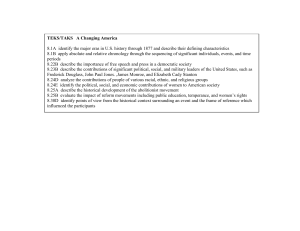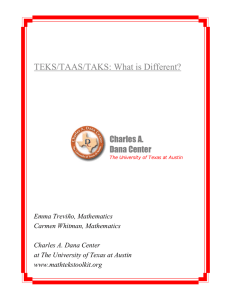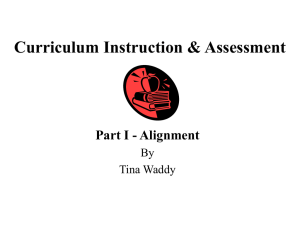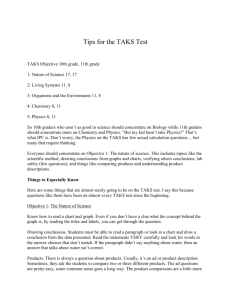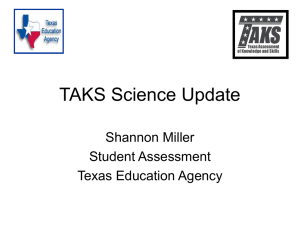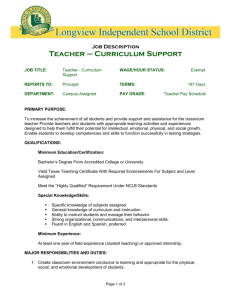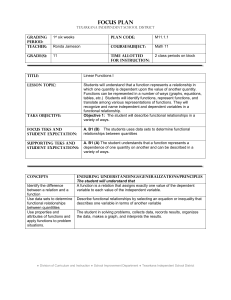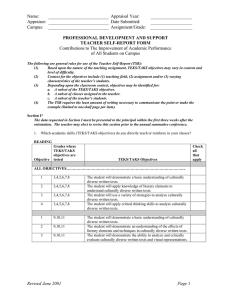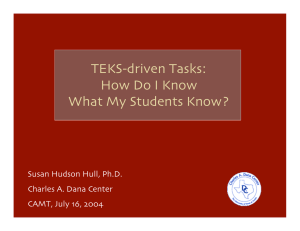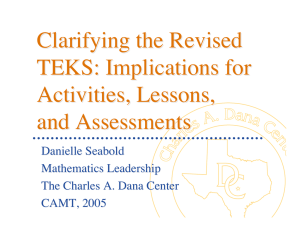Forde-Ferrier Educational Services Science Success on TAKS
advertisement
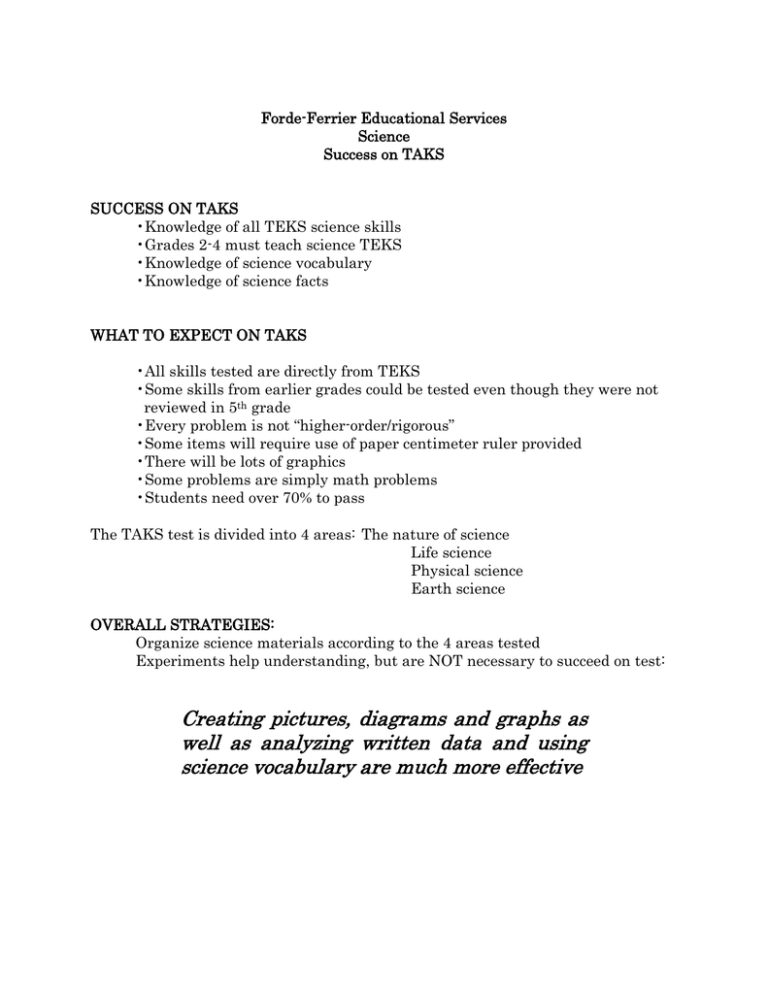
Forde-Ferrier Educational Services Science Success on TAKS SUCCESS ON TAKS •Knowledge of all TEKS science skills •Grades 2-4 must teach science TEKS •Knowledge of science vocabulary •Knowledge of science facts WHAT TO EXPECT ON TAKS •All skills tested are directly from TEKS •Some skills from earlier grades could be tested even though they were not reviewed in 5th grade •Every problem is not “higher-order/rigorous” •Some items will require use of paper centimeter ruler provided •There will be lots of graphics •Some problems are simply math problems •Students need over 70% to pass The TAKS test is divided into 4 areas: The nature of science Life science Physical science Earth science OVERALL STRATEGIES: Organize science materials according to the 4 areas tested Experiments help understanding, but are NOT necessary to succeed on test: Creating pictures, diagrams and graphs as well as analyzing written data and using science vocabulary are much more effective SCIENTIFIC PROCESSES IN KINDERGARTEN •Make observations •Ask a question •Make a hypothesis •Plan and do a Test •Record and Analyze •Draw conclusions •Science safety •Science equipment (be able to recognize these) calculator microscope ruler thermometer compass meter stick timing device magnets collecting nets safety goggles LIFE SCIENCE IN KINDERGARTEN: •Living vs. nonliving. Living things are called organisms •Parts of a plant: seed, roots, stem, leaves, flower, fruit •Life cycles: Butterfly - egg, caterpillar (larva) pupa (chrysalis) adult Ladybug – egg, larva, adult •Living things grow and change PHYSICAL SCIENCE IN KINDERGARTEN (TAKS has many matter questions) •Matter •Properties of matter: color, shape, smell, taste, size, (function, melting point, boiling point, magnetism, conductor of electricity) •States of matter: solid, liquid, gas •Light: form of energy travels in waves and in all directions from source can be reflected and refracted •Sound: produced by vibrations EARTH SCIENCE IN KINDERGARTEN (most difficult area of science for students!!!!) •Deals with earth, sun, moon and planets •Physical features of earth: landforms •Comparing the earth and the moon •Changes over time: seasons and moon cycle/sun cycle, day/night •The earth’s resources: renewable, nonrenewable, inexhaustible •Understand the role of fossils •Properties of the sun: energy source for earth •Weather •Stars •Rocks (fossils, sedimentary, igneous, metamorphic), dirt
